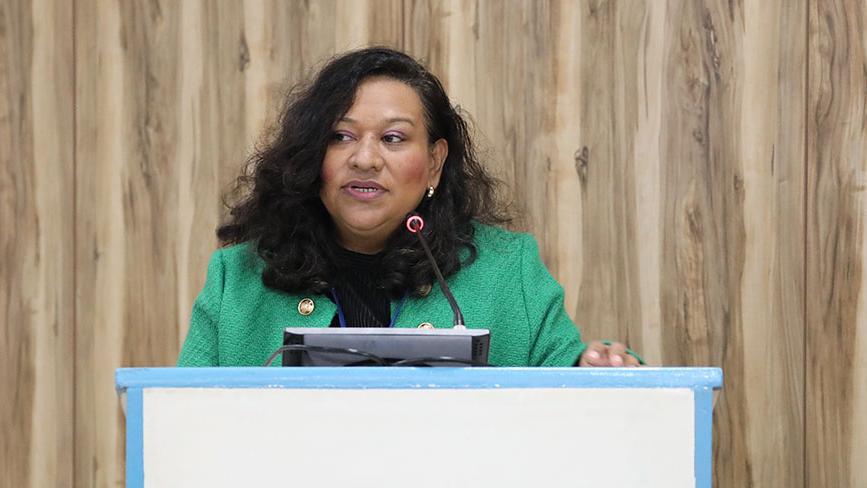CHARIKAR - The active participation of all Afghans in peace-building is necessary for creating a more stable, inclusive and peaceful country, said panellists in a UN-backed radio programme broadcast in the central province of Parwan.
The programme, organized by UNAMA’s Kabul regional office and aired by Barin Radio to audiences estimated at 250,000 people in and around Parwan’s capital of Charikar, featured community leaders discussing ways to promote social cohesion, locally and nationally, in the interest of advancing peace.
“Every citizen has a responsibility to the people and to the country,” said Masror Lutfi, a lecturer from Parwan University. “If everyone fulfils his or her obligations, I’m sure we will have a peaceful environment that enables development and access to fundamental rights and all the joys of life.”
Lutfi went on to say that a cohesive and community-based approach to building peace can help improve education, eradicating illiteracy and opening new opportunities for jobs.
“If schools are closed for my child, I think the violence will be continue,” said Lutfi. “Together, with every action being interrelated to the communities in which we live, we can pave the way to a sustainable peace in Afghanistan.”
Other panellists offered similar views, and together urged members of every community across the country to work toward social cohesion by passing on messages of peace to two or three people each day. If everyone does this, the panellists agreed, Afghanistan could move toward peace.
Soraya Sahar, a women’s rights activist and member of the Provincial Peace Committee, noted that war not only has a physical impact but also is taking an enormous psychological toll on communities across the country.
“The way forward can only be through tolerating and listening to each other, and resolving our disputes through peaceful negotiations,” said Sahar. “We must teach our children the concepts of peace and train them to be peace-lovers who tolerate everybody, as peace starts from the family.”
Linking the discussion to religious injunctions, Amruddin Faizi, a civil society activist, said significant emphasis is placed on the value of human life in the Muslim faith.
“In Islam, killing one innocent person is equivalent to killing the whole of humanity,” he said. “Peace means the settlement of disputes through negotiation and logic; it means having a prosperous life without any fear; and it means a war-free environment that is essential for all sorts of development.”
The panellists together agreed that peace is only possible if everyone together works to eliminate corruption, violence and discrimination.
The radio programme aired to audiences in and around Charikar, including to communities in the bordering provinces of Kapisa, Panjshir and Kabul. The programme is among many other similar events and initiatives resulting from UNAMA reaching out to a range of groups across the country to create spaces, both physical and on social media, for them to come together and discuss issues that are of critical importance to them, and to strategize on the best way forward.
In accordance with its mandate as a political mission, UNAMA supports the Afghan people and government to achieve peace and stability. UNAMA backs conflict prevention and resolution, promoting inclusion and social cohesion, as well as strengthening regional cooperation. The Mission supports effective governance, promoting national ownership and accountable institutions that are built on respect for human rights.
UNAMA provides 'good offices' and other key services, including diplomatic steps that draw on the organization’s independence, impartiality and integrity to prevent disputes from arising, escalating or spreading. The Mission coordinates international support for Afghan development and humanitarian priorities.






